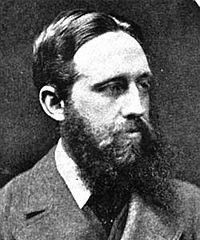Frances Wright Quotes - Page 2
Frances Wright (1850). “A few days in Athens: being the translation of a Greek manuscript discovered in Herculaneum”, p.171
Frances Wright (1850). “A few days in Athens: being the translation of a Greek manuscript discovered in Herculaneum”, p.175
I shall say, that I feel myself virtuous, because my soul is at rest.
"A few days in Athens".
Frances Wright (1821). “Views of society and manners in America: in a series of letters from that country to a friend in England, during the years 1818, 1819, and 1820”, p.426
Frances Wright (1829). “Course of popular lectures as delivered by Frances Wright: with three addresses on various public occasions, and a reply to the charges against the French reformers of 1789. Second edition”, p.31
Frances Wright (1822). “A Few Days in Athens: Being the Translation of a Greek Manuscript Discovered in Herculaneum”, p.9
Frances Wright (1829). “Course of popular lectures; with 3 addresses on various public occasions, and a reply to the charges against the French reformers of 1789”, p.41
Frances Wright (1850). “Fanny Wright Unmasked by Her Own Pen: Explanatory Notes, Respecting the Nature and Objects of the Institution of Nashoba, and of the Principles Upon Which It Is Founded”, p.5
Frances Wright (1829). “Course of popular lectures; with 3 addresses on various public occasions, and a reply to the charges against the French reformers of 1789”, p.45
Frances Wright (1829). “Course of popular lectures; with 3 addresses on various public occasions, and a reply to the charges against the French reformers of 1789”, p.122
Frances Wright (1829). “Course of Popular Lectures”, p.32
Frances Wright (1829). “Course of popular lectures; with 3 addresses on various public occasions, and a reply to the charges against the French reformers of 1789”, p.24
Frances Wright (1829). “Course of popular lectures as delivered by Frances Wright: with three addresses on various public occasions, and a reply to the charges against the French reformers of 1789. Second edition”, p.39
Frances Wright (1829). “Course of popular lectures; with 3 addresses on various public occasions, and a reply to the charges against the French reformers of 1789”, p.26
Frances Wright (1829). “Course of popular lectures”, p.66
Frances Wright (1829). “Course of popular lectures as delivered by Frances Wright: with three addresses on various public occasions, and a reply to the charges against the French reformers of 1789. Second edition”, p.55
I am neither Jew nor Gentile, Mahomedan nor Theist; I am but a member of the human family.
Frances Wright (1829). “Course of Popular Lectures”, p.148
Frances Wright (1821). “Views of society and manners in America: in a series of letters from that country to a friend in England, during the years 1818, 1819, and 1820”, p.312
Frances Wright (1821). “Views of society and manners in America: in a series of letters from that country to a friend in England, during the years 1818, 1819, and 1820”, p.362







